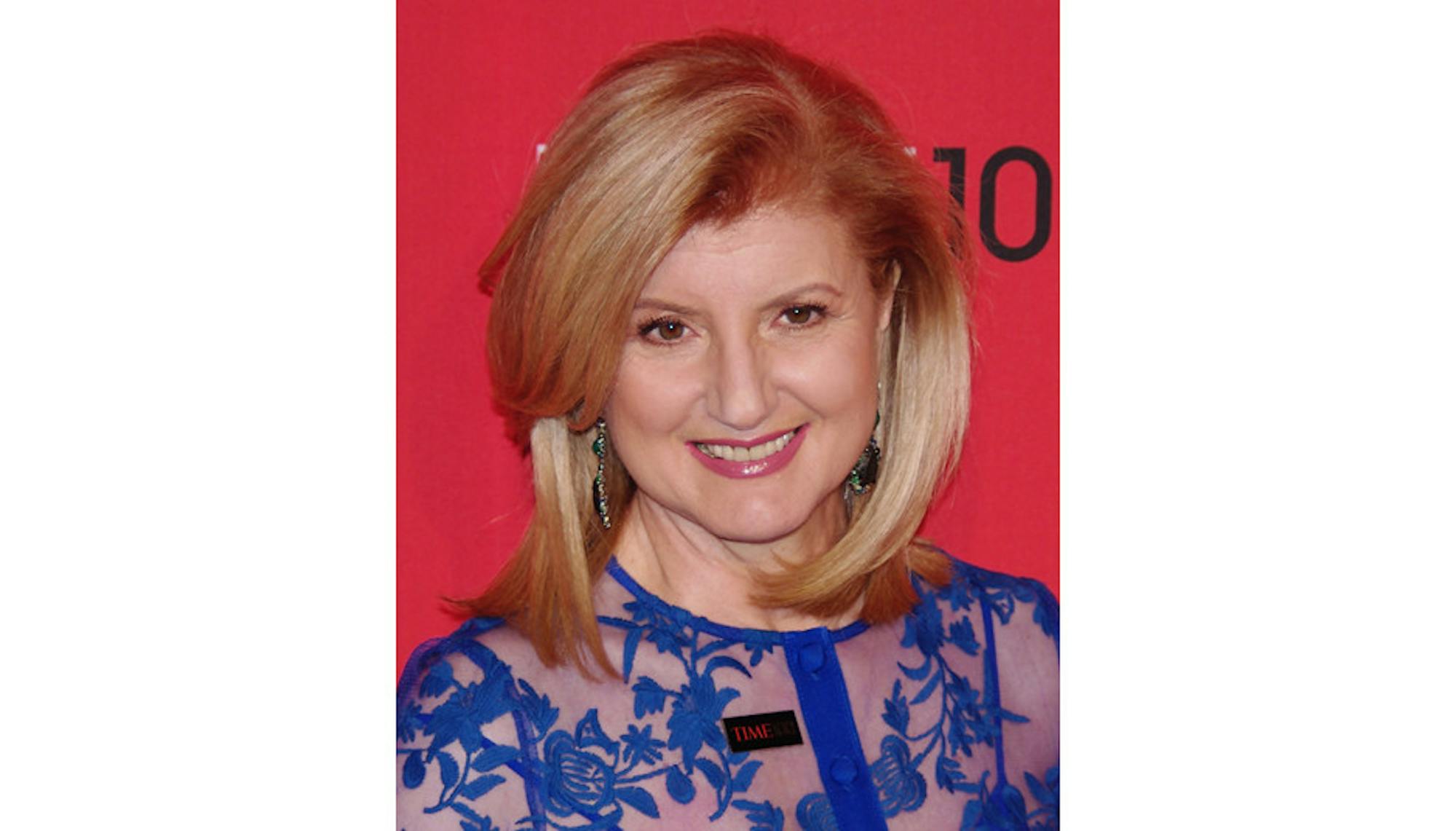Tufts Daily (TD): During [the 2014 Murrow Forum], you spoke about the advantages of digital publications. How, if at all, do you think that the media landscape has continued to evolve since then?
Arianna Huffington (AH): It’s constantly evolving, and the universe of platforms where people engage with news is expanding exponentially ... Whatever our goals are as media organizations, [there is a universal] need to stay nimble, to adapt, to iterate and to evolve in this ever-changing environment — to disrupt ourselves so that we are not disrupted.
TD: What is the biggest disadvantage of running a digital publication?
AH: Since the news is nonstop, there is definitely the temptation for editors, reporters and engineers to try to match the 24-hour news cycle. But at HuffPost, we do a lot to prevent burnout. We have two nap rooms in our newsroom, which are now full most of the time... [Employees are also not] expected to check work email and respond after hours, over the weekend or while they’re on vacation ... With our new vacation email tool, all emails sent to you during your time off will be automatically deleted. The sender gets an auto response asking them to resend their message when you're back or to contact someone you designate if it is urgent.
TD: During your talk at Tufts, you also spoke about the power of news aggregation and guest blogging as tools in promoting [widespread] dialogue on critical issues. How do you think that your news model has influenced political engagement and understanding during the current election season?
AH: From the beginning, we wanted HuffPost to be both a journalistic entity and a blogging platform, and bringing more and more voices into the global conversation is especially important in an election season. The days of the Media Gods up on Mount Olympus telling us how things are, are over.
TD: How do you think that the next generation of public officials can better utilize the media?
AH: The next generation of public officials will do a great public service by advocating for a media that doesn’t pretend that the truth is always in the middle. Not every story has two sides and the truth is often found on one side or the other.
TD: What have been your biggest obstacles as a female leader in [a male-dominated] industry?
AH: There are obviously many institutional barriers, but also many of the obstacles come from within. I think men are much better at silencing the voices of self-doubt in their heads, which I call the "obnoxious roommate." It’s the voice that feeds on putting us down and strengthening our insecurities and doubts. I wish someone would invent a tape recorder that we could attach to our brains to record everything we tell ourselves. We would realize how important it is to stop this negative self-talk. It means pushing back against our "obnoxious roommate" with a dose of wisdom. I have spent many years trying to evict my "obnoxious roommate" and have now managed to relegate her to only occasional guest appearances in my head!
TD: How do you think that students interested in journalism [can best prepare] themselves for the new age of media?
AH: A big part of succeeding in media today is using all the tools at our disposal to tell the most important and most entertaining stories of our time … In addition to developing the timeless skills of storytelling, students interested in journalism should cultivate a curiosity and a spirit of experimentation when it comes to this rapidly expanding universe of tools and platforms.
Editor’s note: This interview has been edited for clarity and length.






